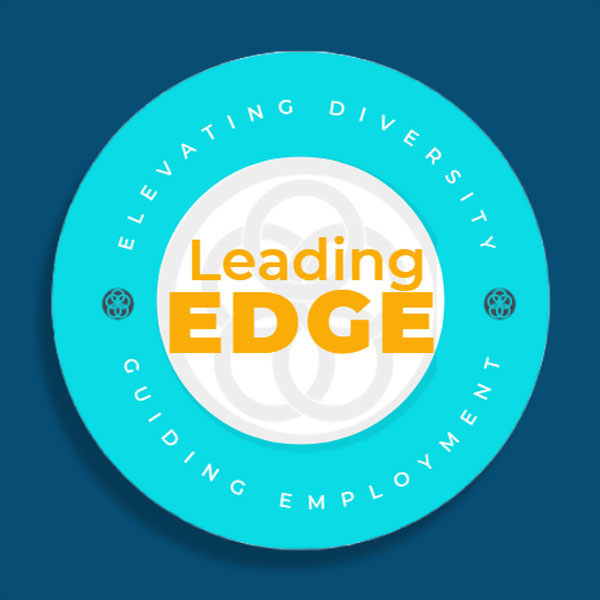More Than “Women at the Table”: Creating Organizations That Are Fair To Women




There is no society on this earth that is gender-equal. – Andrew Gleason, Advisor, Gender Equality & Social Justice, Save The Children
TNPA’s recent webinar, More than “Women at the Table”: Creating Organizations That Are Fair To Women, focused on the questions of gender equity in the workplace.
While many organizations believe they are in a good place with gender equity, a closer look can turn up surprises. In fact, 40% of the 50+ webinar attendees responding to a poll rated their organizations as, “We mean well, and have the best intentions, but really have a lot of room for improvement.”
As Andrew Gleason of Save the Children (STC) recounted, his organization — with more than 1,500 employees in the U.S. and even more globally — was founded by a woman, has a female CEO, and over 80% of the staff identify as women. Clearly, there are plenty of women “at the table.” Yet in 2018, when STC conducted a pay gap assessment, they discovered that men were being paid 10.5% more than women. Surprise! Having women “at the table” does not guarantee equity.
While that gap at Save the Children was much better than the 18–19% average pay gap in the United States, STC wanted to do better. By January 2020, they had closed the gap to 4%, and since then, have effectively closed the gap to only ±1%. To keep from backsliding, they have implemented some specific policies: ongoing championing of pay equity by leadership (including assessing and measuring), banning the use of salary history in the hiring process, reporting to staff regularly and transparently, publishing the salary scales online, and continuing to evaluate the hiring process for any gender bias.
It turns out that pay equity is the number one issue people are most concerned about when asked about gender in the workplace, according to Amy-Willard Cross from GenderFair, an organization that assesses and rates publicly traded companies on gender equity and has created a self-assessment tool for private companies and nonprofits. The second most-cited concern is protection from sexual harassment.
Our poll of the webinar audience also rated “Pay Equity” as the top gender-equity concern, followed by “Discrimination and Microaggressions” as a close second. The poll also showed a lot of energy around women’s ability to advance into leadership positions, the overall composition of leadership teams, and pay transparency, as well as affordable child care, equitable health policies, and board composition.
The panelists emphasized that this work matters not just because it is the right thing to do or it is good for the bottom line (although both are true), but as an issue of human dignity and better understanding power dynamics and their impact on individuals.
Helen Robare of The Nature Conversancy talked about the importance of moving from the “getting ready” phases of studying and planning to taking steps of meaningful action. Many organizations have used surveys and assessment tools to identify their barriers and where they need to improve. They implement action steps and then re-survey and re-assess to hold themselves accountable.
As we know in all aspects of our work, what we measure matters. Amy-Willard Cross from GenderFair explained that of the many data points they collect about companies, the two that have moved over the past few years are — no surprise — the two that are watched and reported on by our broader society: parental leave policies and the number of women on the board. Imagine if we elevated the level of scrutiny on some of the other equity concerns.
While this webinar focused on the gender lens, gender issues cannot be separated from other identities. The intersectionality of different forms of oppression and how they might be (unintentionally or intentionally) playing out in our organizations is crucial to success. Considering power as a force at play, and “interrogating power”, can make all the difference.
The most successful examples of changing the equity equation came from stories that looked closely not only at policies, but also at culture and changing that culture, and from those who took a careful look at power dynamics within their company and organization. As part of this process, Andrew Gleason shared that the motto from his team at STC is this: “We work to make the invisible visible.”
Watch the Recording of the Webinar
Recorded June 29, 2022
Additional Resources to promote Gender Equity
The Webinar recording of the full conversation: Available on demand
Envisioning Gender Equality for the Next Generation: 2022-2024 Gender Equality Strategy from Save the Children
The Minimum Standards for Mainstreaming Gender Equality have been developed through a multi-year collaborative process by the Gender Practitioners Collaborative: Minimum Standards for Mainstreaming Gender Equality
The Gender Fair assessment will show you how your organization benchmarks compared to other organizations (companies, private organizations, and nonprofits): https://www.genderfair.com/assessment/. The self-assessment takes less than an hour to complete, costs $1,000 and provides an instant score with an automated report and recommendations.
Equal Pay Studies & Assessments: While there are many high-priced consultants and software for racial/gender pay studies, there are also some inexpensive options for doing pay studies:
- National Committee on Pay Equity’s Employer Self-Audit Ten-Step Guide: https://www.pay-equity.org/cando-audit.html
- Re:Work’s Guide to conduct a pay equity analysis: https://rework.withgoogle.com/guides/pay-equity/steps/prepare-to-conduct-a-pay-equity-analysis
- The Advancing Equality Calculator: https://thefemalequotient.advancingequalitycalculator.com/
- OpenComp created an app called Range Builder that will automate the process of creating pay ranges. It is free to sign up: https://lnkd.in/gZWfM2sH
If you have specific questions or ideas for future webinars, on this topic or others, please don’t hesitate to reach out to Abby Graf, Vice President of Programs and Community Engagement at The Nonprofit Alliance: agraf@tnpa.org.



